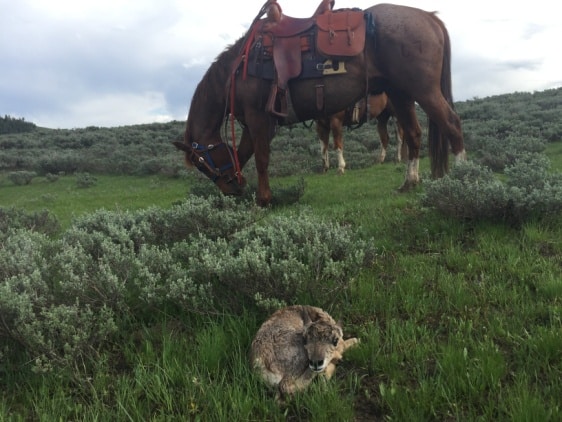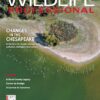President’s Message
Summer 2018
Message from the President, Ben Wise
Hope springs eternal…
June is the season of rebirth for both flora and fauna, and is one of the most incredible months to be in Wyoming. As we progress through spring with renewed life and warmer temperatures, it is imperative to remember that we must stay ever vigilant toward risks to both wildlife and wild spaces. As mule deer and pronghorn migrate from low elevation winter ranges into the higher elevation basins they call home during the summer, land management agencies in the state of Wyoming are seeing increased pressure to fast track mineral exploration and production on some of the most critical transitional ranges that remain intact and functional. As sage-grouse hens wearily tend their nests in the sagebrush ecosystems throughout the state, efforts to remove or greatly reduce the protections of their expansive, intact habitats are receiving increased interest. These are just a few of the ever growing list of threats to wildlife and wild spaces that our profession has to address on a daily basis.
From the outside looking in, many of the regulations that are in place related to development of federal lands in the mountain west seem overly protective and burdensome, but the rational behind these regulations are based on sound science. While many view the permitting process as painfully slow and ineffective, the process is thorough and allows for adequate public involvement. The process also requires surveys and documentation of wildlife species potentially affected by the development and often requires both mitigation and reclamation planning and bonding prior to the onset of development. The reason for many of the regulations regarding protections of air, water, land, and wildlife are due to mistakes of the past, and even though they may seem overbearing, these regulations are rooted in history and have resulted in higher sustainability for both the extraction process and impacted lands.
The future is not all doom and gloom. The state of Wyoming and our nation as a whole is in a constant state of change, politically, culturally, and ideologically. Change is good as it allows for improvement, ingenuity, and collaboration to occur and often in the end, a better product is produced. Adversity can also be good, as it tests our mettle, gives us a renewed sense of purpose, and keeps our profession striving to do the best we can do. In the end, it is imperative that we stay engaged, involved, and ever vigilant to the risks facing the very thing that makes Wyoming so special, its abundant wildlife and wild places.

 Ben Wise is the Jackson Regional Brucellosis-Feedground-Habitat (BFH) Biologist for the Wyoming Game and Fish Department (WGFD). He is tasked with working to reduce the risk of transmission of communicable wildlife diseases (primarily Brucellosis) both inter- and intra-specific through adaptive feedground management, habitat treatments, and disease research.
Ben Wise is the Jackson Regional Brucellosis-Feedground-Habitat (BFH) Biologist for the Wyoming Game and Fish Department (WGFD). He is tasked with working to reduce the risk of transmission of communicable wildlife diseases (primarily Brucellosis) both inter- and intra-specific through adaptive feedground management, habitat treatments, and disease research.


